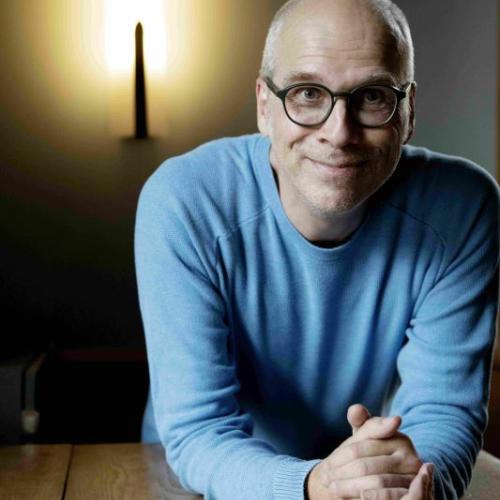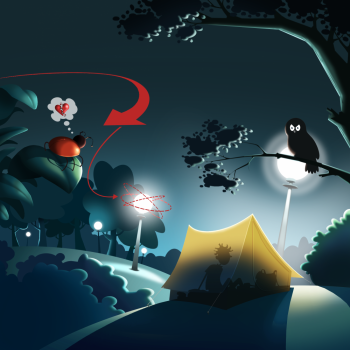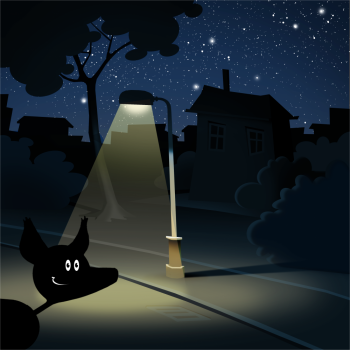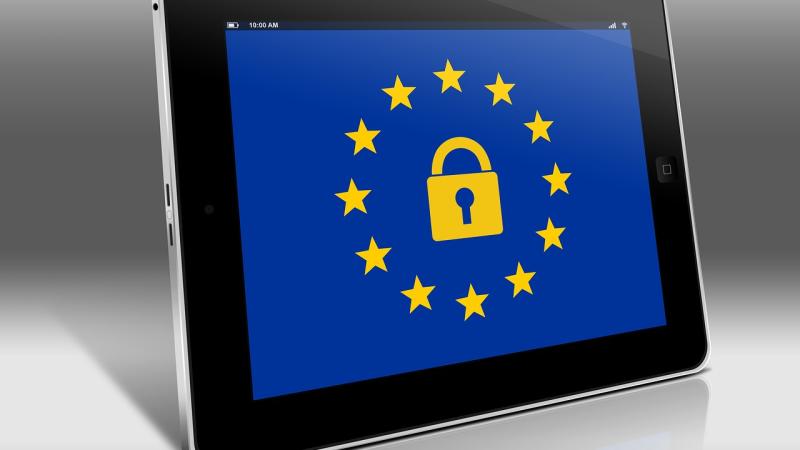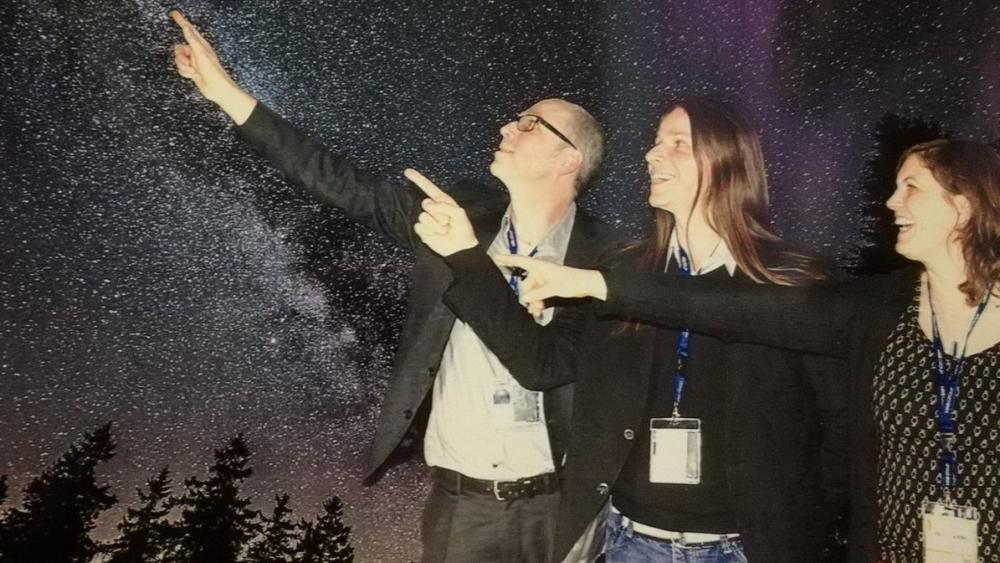
Dr. Franz Hölker, Dr. Andreas Jechow and Dr. Sibylle Schroer promoted starry nights and less light pollution at the ITB Berlin. | Photo: IGB
Dr. Sibylle Schroer presented pictures, videos and information about celestial phenomena such as northern lights and the total solar eclipse. The material was created on expeditions with Miguel Serra-Ricart, astronomer at the Astrophysics Institute of the Canary Islands (Instituto de Astrofísica de Canarias, IAC), as part of the project STARS4ALL. Dr. Franz Hölker, head of the research platform "Loss of the Night", moderated at the end of the day a panel discussion with the experts Harald Bardenhagen of the Star Park Eifel, Andreas Hänel from the International Dark Sky Association, Tim Horn, director of the Zeiss Planetarium Berlin, and Sibylle Schroer.
Participants agreed that protected dark areas, such as star parks or star reserves, are necessary to develop sustainable astro-tourism. In Europe, however, there are only a few areas left where observation of night sky phenomena is possible at all, because artificial lighting at night is too intense and is increasingly extending into nocturnal landscapes (nightscapes) far beyond urban areas. It is therefore urgently needed to protect and preserve areas, which are still relatively unaffected by so-called light pollution such as the Westhavelland west of Berlin.
The experts also worried about the global trend towards cold-white LEDs, which could lead to a rapid increase in the amount of light pollution. They therefore advocated to increase public awareness for the value of natural darkness for humans and nature and for the problem of light pollution and possible measures for its reduction. Furthermore they emphasized that the EU should be much more involved in identifying ways in which practical steps can be taken to reduce environmental concerns.


